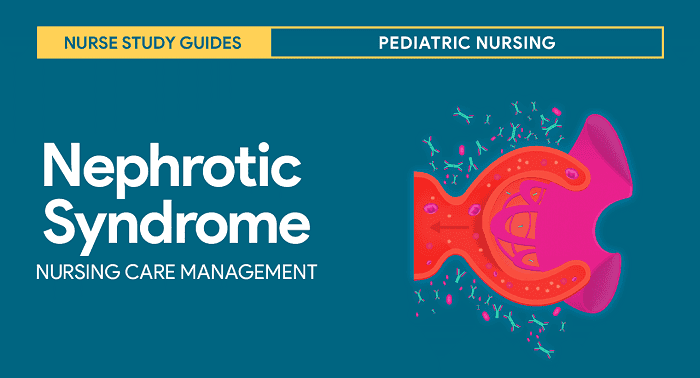A kidney condition that makes your body excretes an excessive amount of protein in urine is known as nephrotic syndrome. Our kidneys consist of clusters of tiny blood capillaries that filter waste and extra water from your blood and are typically damaged in nephrotic syndrome. The condition raises your chance of developing other health issues and produces swelling, especially in your ankles and feet.
The ailment producing nephrotic syndrome must be treated, and medicine must be taken for that. Your risk of infections and blood clots can increase if you have nephrotic syndrome. To avoid issues, your doctor may suggest medications and dietary modifications.

Nephrotic syndrome ayurvedic treatment has always been a blessing to the patients excreting proteins in urine. It not only reduces the amount of proteins in urine but it also eradicates the disease from its roots.
Is nephrotic syndrome for life?
Despite the fact that nephrotic syndrome can turn up as a dangerous condition, the majority of patients still benefit from the therapy and can have normal lives. Patients may respond to treatment within a few days, depending on the cause, or it may take several weeks or even months.
What triggers nephrotic syndrome?
Certain medical problems are among the factors that can raise your risk of developing the nephrotic syndrome. Nephrotic syndrome is more likely to occur in people with certain illnesses and conditions, such as diabetes, lupus, amyloidosis, reflux nephropathy, and other renal diseases.

Is nephrotic syndrome genetic?
There is an autosomal recessive gene that causes nephrotic syndrome. If the parents carry the genes of nephrotic syndrome, they have a 1 in 4 chance of having a child with this syndrome with each pregnancy.
Who is most susceptible to developing nephrotic?
Nephrotic syndrome is more likely to develop if you suffer a kidney illness such as FSGS, lupus, or diabetes.
What are the symptoms of nephrotic syndrome?
Nephrotic syndrome is a collection of symptoms. The most common are:
- Fever and raised WBC count
- Oedema in feet and hands and around the eyes
- Weight gain due to fluid retention
- High blood pressure
- Foamy urine occurs due to protein loss from the body into the urine
It has been observed that the symptoms of nephrotic syndrome are similar to other medical conditions or problems.

How is nephrotic syndrome managed?
Managing nephrotic syndrome is not difficult. Steroids are the primary treatment for nephrotic syndrome in allopathy. The drugs most frequently used to treat patients with primary nephrotic syndrome are corticosteroids, also known as steroids. These medications can lessen the amount of proteins excreted in the urine. But these medicines depress the immune system and can be dangerous.
What food is good for nephrotic syndrome?
Foods that can be consumed in a nephrotic syndrome diet
- Lean meats (poultry, fish, shellfish)
- Fresh fruits (pears, oranges, apples, watermelons, etc.)
- Fresh vegetables (green beans, lettuce, tomatoes)
- Low-sodium canned vegetables.
- Potatoes.
*One should consume frozen fruits and vegetables only when fresh food is unavailable. One should avoid canned foods as well.
Which food is not allowed in nephrotic syndrome?
It is never advised to load your meal with a high-protein diet if your blood test reports proteinuria. Foods that are high in sodium are also not recommended. Most canned foods (vegetables, meats, pasta meals), processed foods (meats, pepperoni, salami, hot dogs, and sausage), etc. are also not recommended.

How can I reduce proteins in my urine?
The possible treatment that helps to reduce protein excretion includes:
- Changes in your diet Weight loss
- Blood pressure maintenance
- Diabetes management
Will drinking water reduce protein in urine?
It is a common myth that drinking more water would treat proteinuria. Drinking more water will only make you pee more, and there will be less concentration of proteins every time you pee. It would never stop your kidneys from leaking proteins in urine.
Does exercise help reduce nephrotic syndrome?
Exercise therapy is always beneficial as it improves body functioning. Exercise increases the demand for proteins in your body. Therefore, one must consult your physician before one starts or continues with exercise during your proteinuria or nephrotic syndrome problem.
Can you get rid of nephrotic syndrome?
Nephrotic syndrome is almost always treatable, and the treatment depends on the cause. Ayurveda suggests a few herbs that have profound action on the condition and helps in kidney rejuvenation. Ayurvedic medicine for Nephrotic syndrome consists of herbs that specifically act on the root cause of the disease and help rejuvenate at the cellular level.

How do you reduce swelling from nephrotic syndrome?
Corticosteroids, or steroids, are the medicines most often used to treat nephrotic syndrome. These medicines suppress the immune system and reduce the amount of protein passed into the urine. This reduction also decreases swelling. It must be noted that with this, the root cause of the problem is never treated and has the potential to reoccur again. Ayurveda has always been supportive in treating nephrotic syndrome patients.

How do you prevent nephrotic syndrome relapse? Is ayurveda helpful in nephrotic syndrome?
Nephrotic syndrome can relapse if the conditions causing it are not treated well. The treatment for nephrotic syndrome in ayurveda focuses on curing the condition’s root cause. In nephrotic syndrome, there has been a blockage in the channels in the kidneys. The nephrotic syndrome ayurvedic treatments like panchkarma clears off the toxins accumulated in Srotas. The patients are also administered herbal formulations that work by alleviating the effects of accumulated toxins. These medications remove obstructions for free passage of blood, nourish the tissues, and cleanse the system. This line of treatment is always helpful in reversing the condition in a holistic approach.

